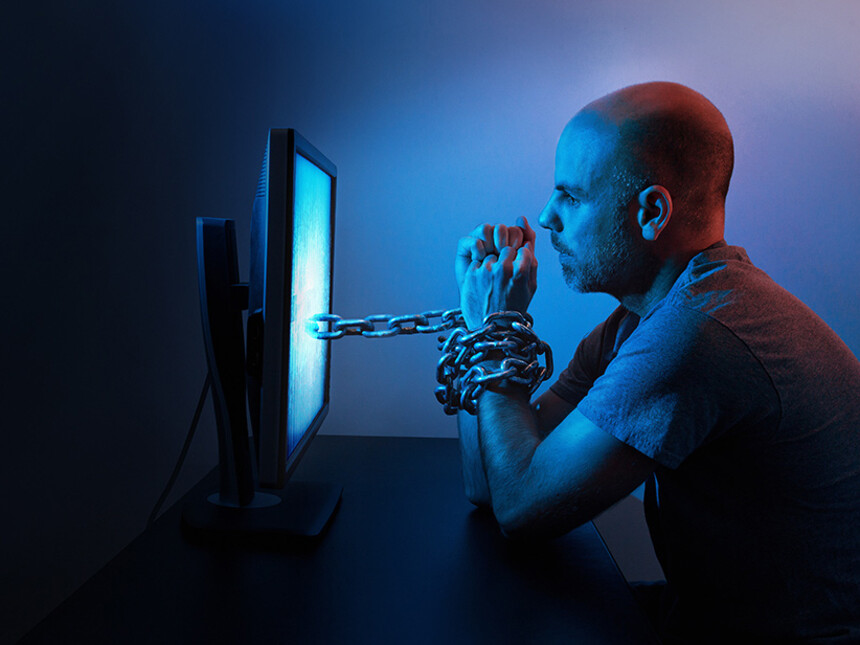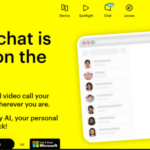If you can’t imagine your life without social media, you’ve probably fallen victim to the power social network media sites have over their audiences. Chances are you have also experienced some of the negative effects social media has on its users.
Unfortunately, the harmful effects of social media are all too real for many of us. Let’s take a closer look in this article at the negative impacts of social media that happen every day on real people.
Why is social media bad for us?
It is interesting to learn that the negative effects of social networks can be physical and mental. They can both change our perception of the world and of ourselves. Although social networks have positive effects, they also have a lot in the negative column.
Do you have any doubts about these negative effects? So read on to discover a list of the negative effects of social network media. If you recognize any of the effects discussed below as a problem in your own life, it may be time to reduce your use or even stop using certain social media altogether.
1. Depression and anxiety
Do you spend several hours a day browsing social media apps? Spending too much time on these apps could seriously affect your mood. Indeed, chronic social media users are more likely to report poor mental health, including symptoms of anxiety and depression.
It doesn’t take much thinking to figure out why. Social media allows us to see the carefully selected best parts of other people’s lives, which we then compare to the negative aspects of our own lives. Comparing yourself to others is a sure path to anxiety and unhappiness , and social network has made that much easier to do.
So how do you use social media without causing yourself psychological distress? The recommended time we should spend on social media is around half an hour a day. As with many other potential evils in life, it’s all about moderation.
If we feel upset after a session on social networks, think also about the networks we use and the people we follow. We’re notably much more likely to feel anxious after reading political arguments and doomsday news than after seeing updates from our favorite artists.
2. Cyber-harassment
Before social network, bullying was something that was only possible face to face. However, nowadays people can bully others online, anonymously or not. Today everyone knows what Cyberbullying is, and most of us have seen what it can do to a person.
Although social media makes it easier to meet new people and make friends, it also allows cruel people to harm others with little effort. Bullies may use the anonymity offered by social media to gain people’s trust and then terrorize them in front of their peers.
For example, they may create a fake profile and act friendly with a classmate, then betray and embarrass them later online. These online attacks often leave deep mental scars and even drive people to hurt themselves or even, in the worst case scenario, to commit suicide.
Plus, it turns out that cyberbullying doesn’t just affect children. Adults can also be victims of online abuse.
3. Unrealistic expectations
As you probably know, social media forms unrealistic expectations of life and friendships in our minds. Most social media apps are sorely lacking in authenticity. People use Snapchat to share their exciting adventures, post on Facebook how much they love their partner, and load their Instagram page with highly staged photos.
But in reality, we have no way of knowing if this is all a prank. While it might look great at first glance, this person might be heavily in debt, on bad terms with their spouse, and desperate for low Instagram likes.
A simple way out of this mess would be for everyone to stop lying on social media. But in the age of Instagram influencers and YouTubers making millions by being inauthentic, that’s not going to happen anytime soon…
So, it’s helpful to remember an important adage: we shouldn’t judge our daily life by the highlights of someone else’s.
4. A negative body image
Speaking of Instagram celebrities, if we look at popular Instagram accounts, we will find incredibly beautiful people wearing expensive clothes over their perfectly sculpted bodies.
Not surprisingly, body image is now an issue for almost everyone. Of course, seeing so many people who are supposed to be perfect (by society’s standards) on a daily basis makes us realize how different we are with these images.
Alas, not everyone comes to sound conclusions in this situation. It’s really important to remember that everyone is human . No one wakes up every day looking like a supermodel, although many people have gone to great lengths to train their bodies, not everyone who looks fit does.
Many people, in pursuit of social media fame, have definitely gone down unhealthy paths to look more attractive. So, let’s try to surround ourselves with people who love us and for who we are and we won’t have to worry about Instagram’s fake beauty.
5. Unhealthy sleeping habits
Besides increasing incidents of anxiety and depression, another downside of social media is that spending too much time on it can lead to poor quality sleep. Numerous studies have shown that increased use of social media has a negative effect on the quality of your sleep ( like this Canadian study among college students ).
If we feel that our sleep patterns have become irregular, leading to a drop in productivity, then it is useful to reduce the time we spend on social media. This is especially the case when we use our phone in bed at night (hard practice to stop I am aware ).
It is indeed easy to tell ourselves that we will simply spend five minutes checking our Facebook notifications, only to realize an hour later that we have spent more time than expected on the application.
Don’t let social media algorithms, designed to hold your attention for as long as possible, rob you of your precious sleep too. Sleeping less, combined with lower quality sleep, is a dangerous combination.
6. FOMO (Fear Of Missing Out) Syndrome
FOMO syndrome (fear of missing out in French) is a phenomenon that has become prominent around the same time as the rise of social media.
Unsurprisingly, this is one of the most widespread negative effects of social media on society. FOMO is exactly what it sounds like: a form of anxiety we feel when we’re afraid we’ll miss out on a positive experience someone else is having .
For example, we can constantly check our messages to see if someone has invited us, or focus on our Instagram feed all day to make sure no one is doing something interesting without us.
We may also see pictures of something fun our friends have done, and then feel left out when we just couldn’t go because we had other responsibilities.
This fear is constantly fueled by what we see on social media. With increased use of social media, we have a better chance of seeing someone having more fun than us right now. And that is exactly what causes FOMO.
7. General dependency
Social media can be more addictive than cigarettes and alcohol. It has a powerful appeal to many people that drives them to check it all the time without even thinking about it.
If we’re not sure if we’re addicted to social media, we can try to remember the last time we went an entire day without checking our social media accounts. Do we have a feeling of rejection if someone no longer follows us? What if tomorrow our favorite social networks disappeared completely, would the absence make us feel empty and depressed?
Ultimately, these platforms want to keep us scrolling as long as possible so they can show us lots of ads and earn more money. Due to the attention economy, these sites need us to look at them as long as possible. Just because we’ve abused social media at some point doesn’t necessarily mean we have to delete all of our social media accounts.
To conclude…
As with everything else, there are upsides and downsides to social media. We have discussed some of the negative impacts of social media for many, but it is up to everyone to decide and find the best way to use these digital tools.
If we find that social networks have a negative impact on our lives, stop or reduce the use of them. However, if we decide not to stop, it is important to regulate our use of social networks in order to maintain a healthier relationship with them.











1 thought on “7 negative effects of social networks on users”